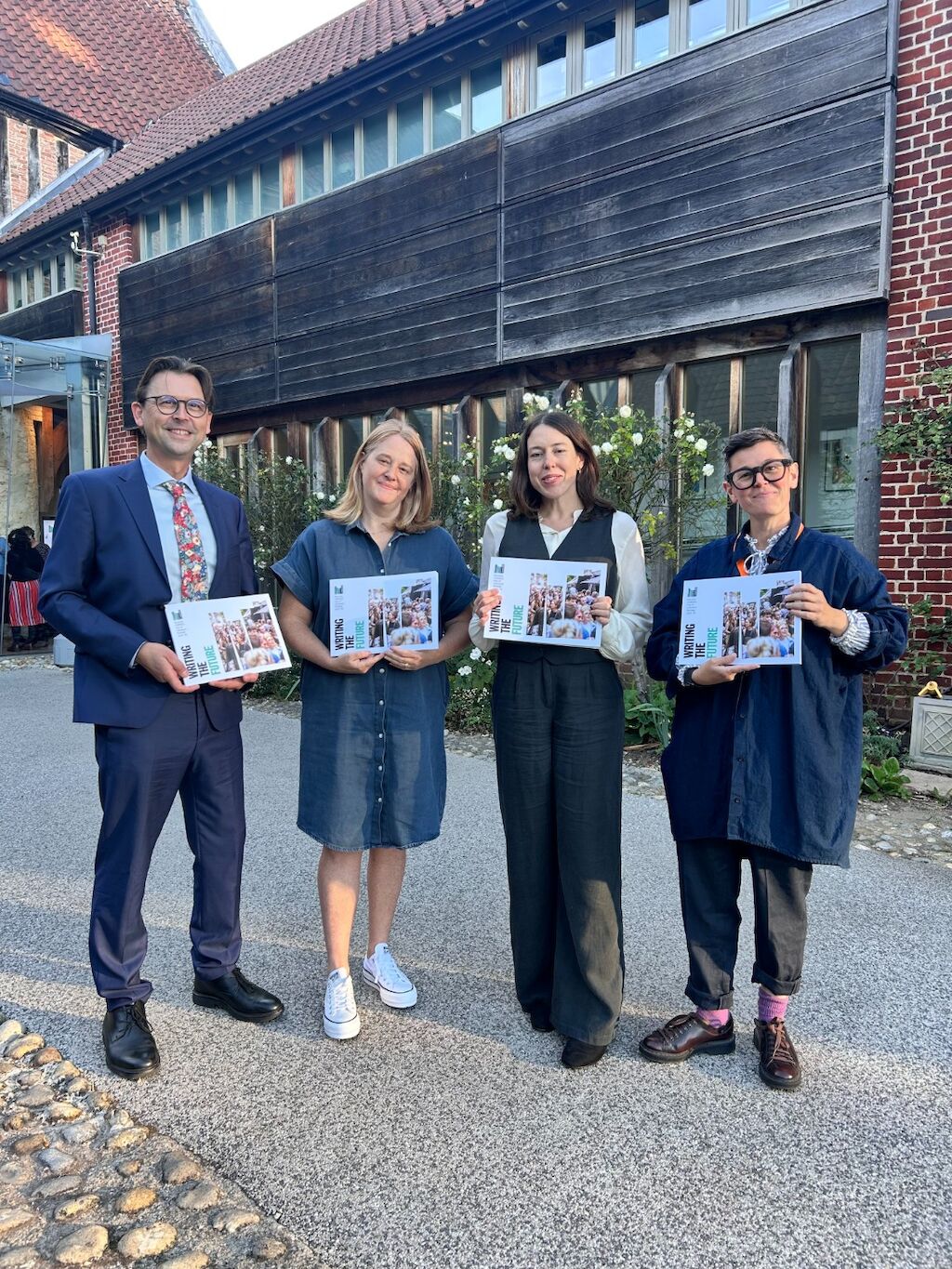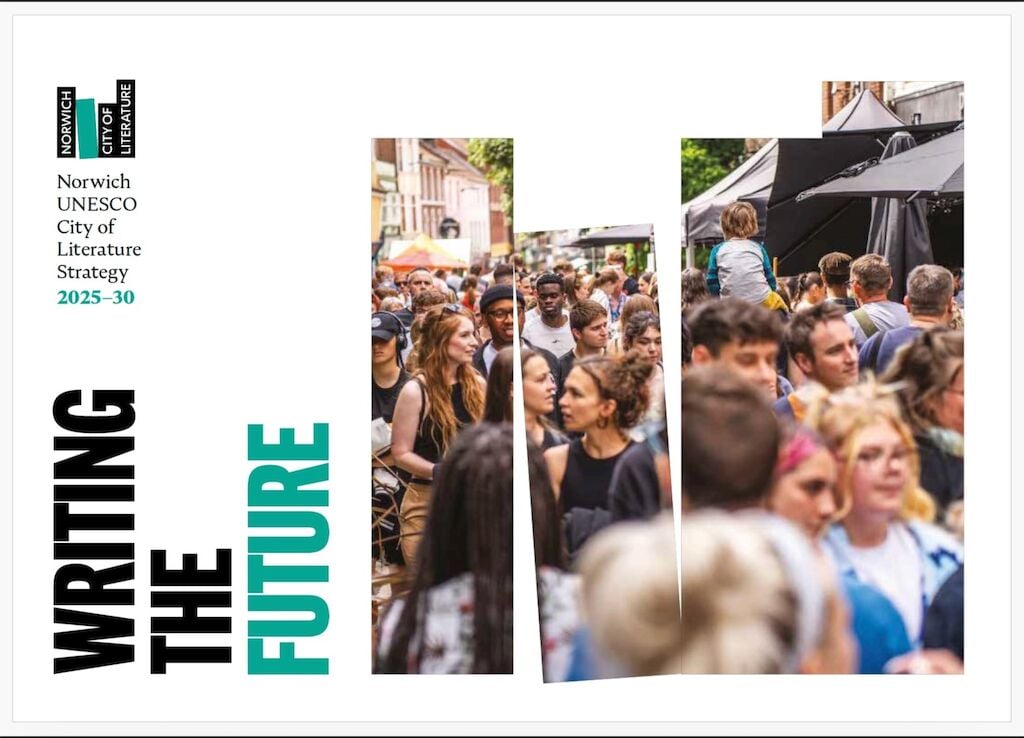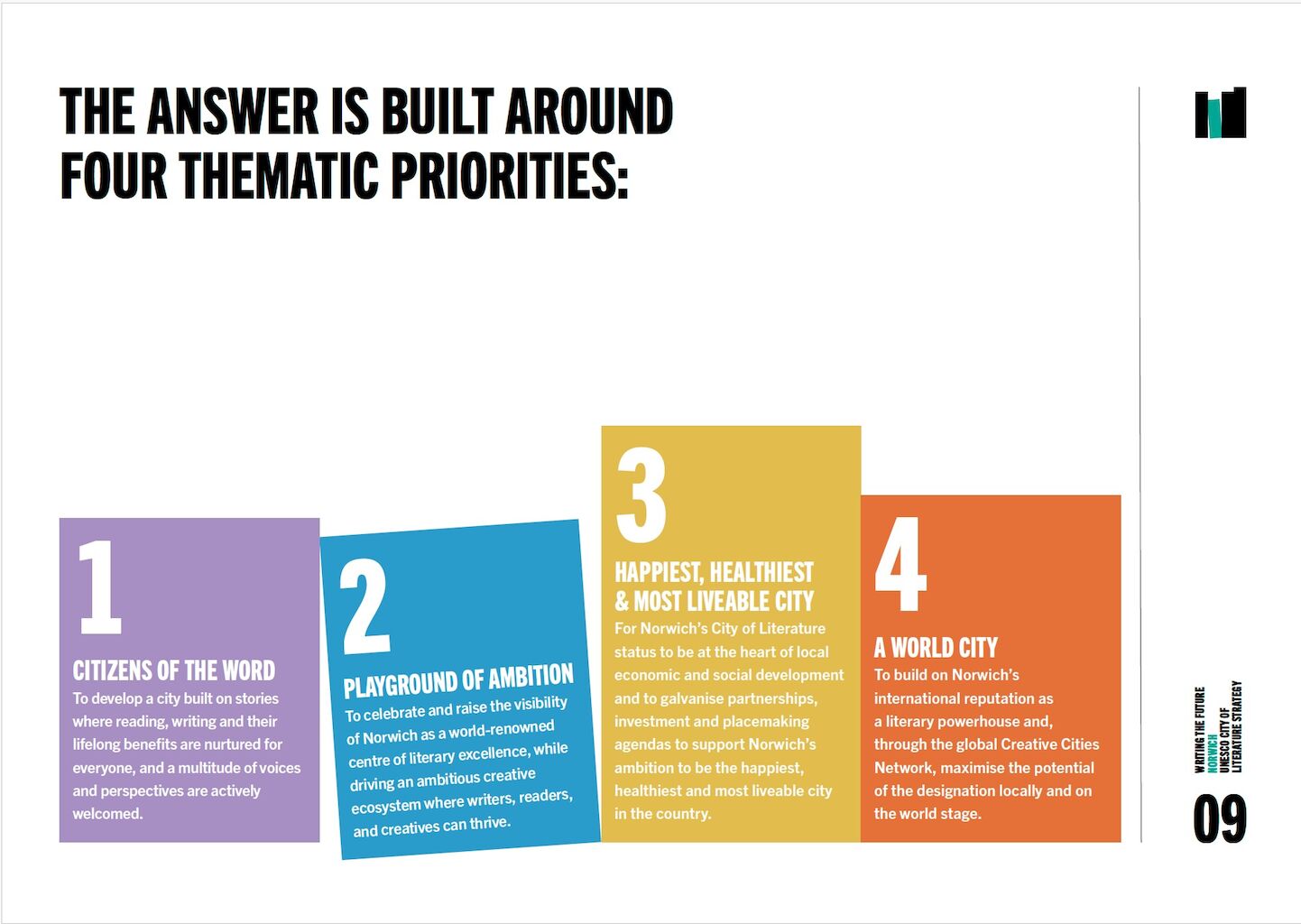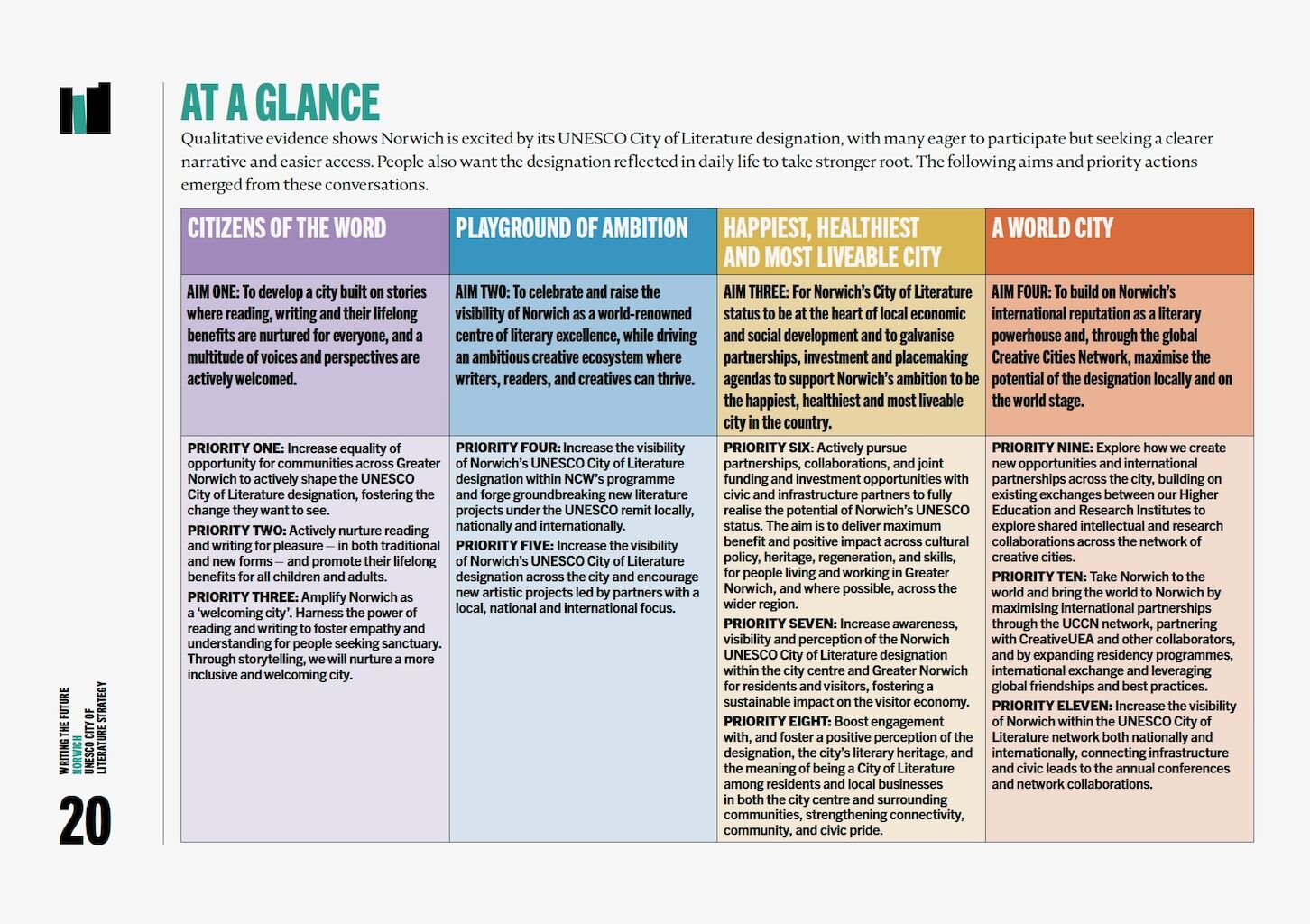In welcoming the strategy:
Alice Macdonald MP for Norwich North said,
‘Norwich is a thriving centre of creativity and innovation and being England’s first UNESCO City of Literature is at the heart of this. We know reading and writing are the bedrock of a child’s future life chances. This new strategy shows how reading for pleasure relates to the skills agenda and could promote inclusive economic growth in Norwich and Norfolk. The guiding principle is that culture, reading and writing are for everyone. I warmly welcome it, and I look forward to working with partners to help realise the full potential of Norwich as a proud member of the global UNESCO Creative Cities Network.’
Peggy Hughes, CEO at National Centre for Writing said,
‘This strategy celebrates strengths, acknowledges challenges, and, by giving us a powerful and shared focal point to unite the city’s talents and resources, invites us all to lean forward together into positive solutions. The action plan has been informed by deep conversation and consultation with a wide variety of stakeholders and advocates for reading, writing, education, creativity and place-making (to whom we’re extremely grateful), and is underpinned by evidence to guide decisions around key priorities: via this prized UNESCO vehicle we want to change the city’s prospects for the better and have conversations together about the things that matter to us all today.’
‘Norwich may be small in geography, which allows for tight and true collaboration, but we’re very big in ambition for our future, ready to take action for positive change.’
James Bridge, Chief Executive and Secretary-General of the UK National Commission for UNESCO said,
"‘Norwich's status as a UNESCO Creative City of Literature shows how it's globally recognised for its outstanding contribution to writing. It is fitting in this 80th anniversary year of the founding of UNESCO in the UK that Norwich is launching its new strategy. The ‘Writing the Future’ plan is grounded in the community and helps connect the local to the global. It is an example of best practice within the international network of UNESCO sites.
Norwich's dedication to literature and ‘doing things differently’ (not least via its UNESCO university chair at UEA in Adult Literacy & Learning for Social Transformation) is another example of why it's a key member of the UNESCO family.’











